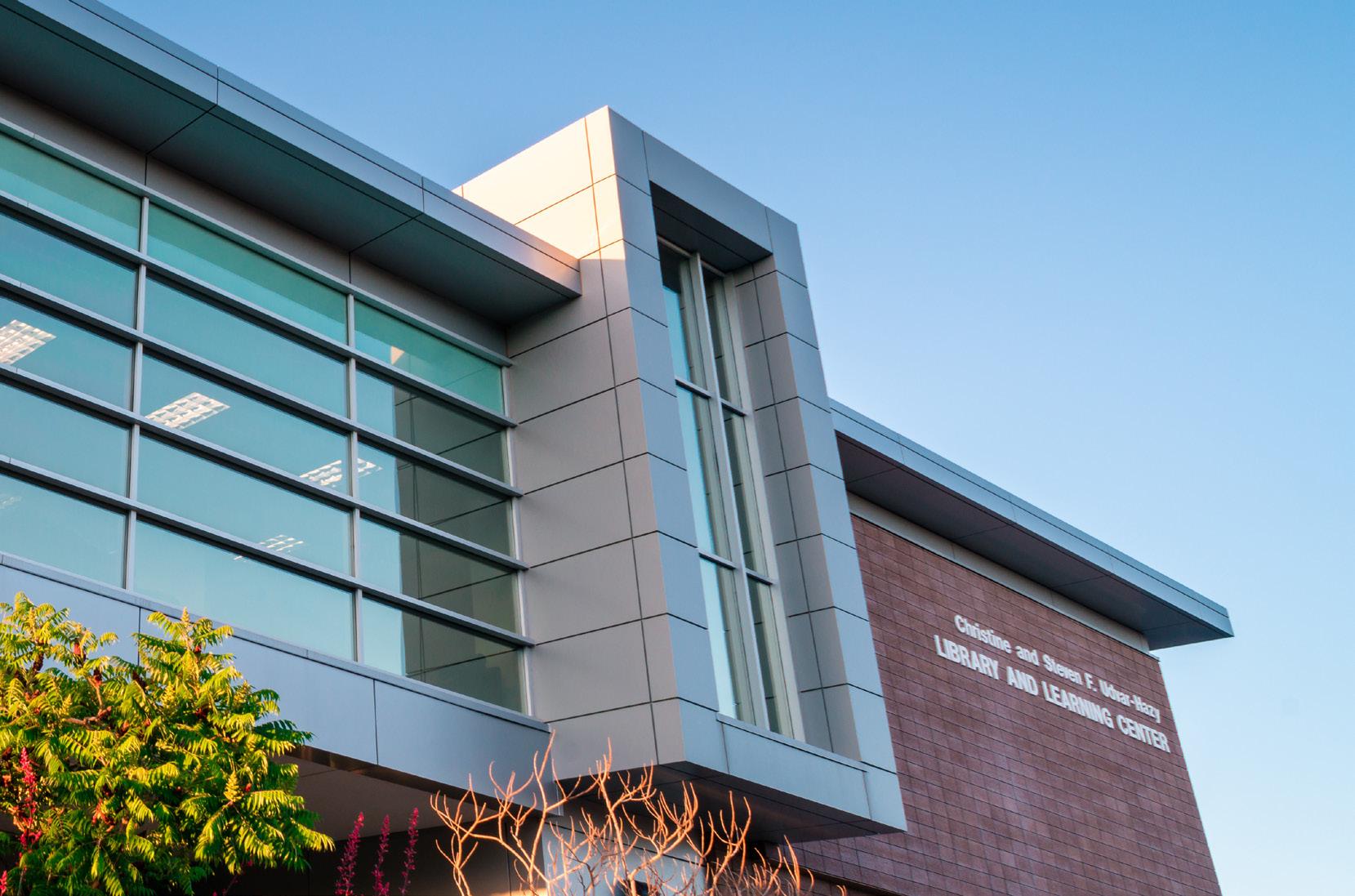
1 minute read
Library and Learning Center
The Hazy Library and Learning Center offers a technologically rich and aesthetically inviting academic environment.
Students use a variety of research and study accommodations including individual study spaces, group and collaborative presentation rooms, and 124 computers throughout two floors in the library. The library provides on-site collections, access to online research databases, e-books and e-journals, streaming video, and professional staff for assistance. In addition, the Undergraduate Research Institute, Disability Support Services, and Testing Center are located in the Library.
The Hazy Library is a member of the Yavapai Library Network, whose membership allows students and faculty access to books, e-books, and DVDs from a network of 43 academic, public, K–12 school, and special libraries throughout Yavapai County.
Information resources and equipment:
Print books, DVDs, magazines, and journals 24/7 access to 250,000+ e-books and e-journals 24/7 access to 100+ online research databases
Course materials placed on reserve Kalusa Collection of 6,000 to-scale miniature airplane models Laptop checkout Desktop computers, scanners, and printers Interlibrary loan and library consortium borrowing
Christine and Steven F. Udvar-Hazy Library and Learning Center

hazylibrary.erau.edu
Library research, instruction, and
engagement: Research assistance, consultation, and workshops are provided by a team of research librarians. Research assistance is available to students and faculty not only at the ASK/Research desk, but via consultations, e-mail, text, and telephone.
Librarians provide instruction to students, in collaboration with faculty, in the use of print and digital resources that support course and project-based learning. They also manage print and digital collections to provide resources that support degree programs and campus curriculum. Librarians work collaboratively with faculty on academic research projects via the URI (Undergraduate Research Institute) research grant projects, Scholarly Commons (an open access institutional repository for academic research), the CTLE (Center for Teaching and Learning Excellence), and the general education curriculum, helping to embed course learning, instructions, and assessment at all levels.









